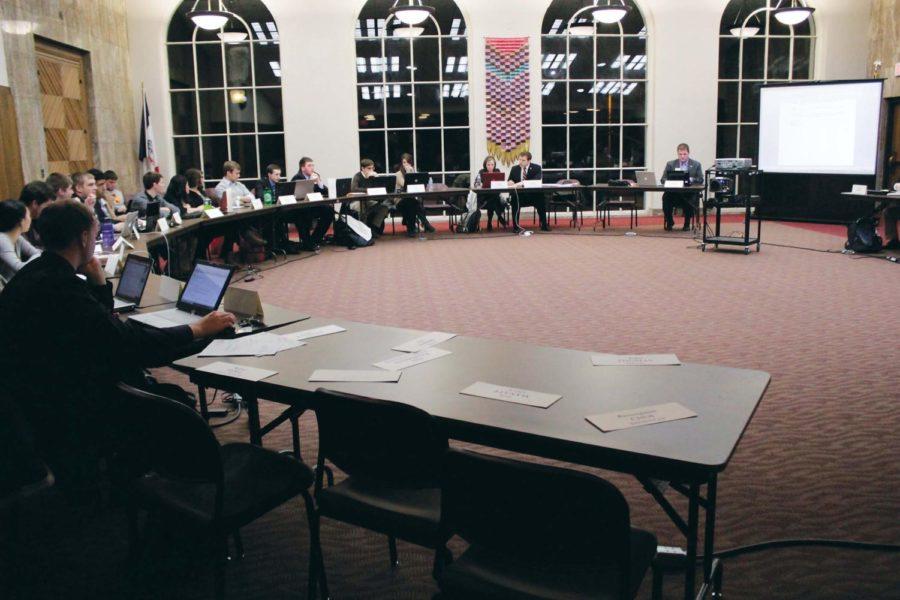High turnover rate in GSB senate allows more underclassmen to join
January 17, 2012
The Government of the Student Body senate is composed of younger senators than it has been in years past.
“This year, the average age is 20,” said GSB Vice President Jared Knight.
In the past, 21 or 22 was the average age of a GSB senator, Knight said. The longest tenured senator in the senate this year is a sophomore.
This year, six of the 39 senate seats are up for election, in which sophomores hold nine of those seats. Elections will be held in March and the trend of younger students in the senate may continue. What does a younger senate mean for GSB and the rest of Iowa State’s student body?
“There are benefits and drawbacks to having differing age groups in GSB,” Knight said.
Michael Glawe, junior in finance, has served on the senate for two years. Glawe thinks the biggest disadvantage to having a younger senate is the problems that arise in organization.
“The younger senate is simply not comfortable and that causes engagement problems,” Glawe said.
A younger senate is filled with underclassmen who lack experience when compared with an older senate, Knight said.
“The differences between this senate and previous senates isn’t the youth of the senators so much as the lack of older, experienced mentors to guide the younger senators through the proceedings and processes,” Knight said.
It is necessary for officers in leadership roles to understand how GSB works, Knight said. They learn from being in GSB and other clubs or organizations.
Senators usually work their way up to officers by learning from older role models. With no older members to guide the senate, the learning curve for new senators is steep. Younger senators jumped into leadership roles that typically required more experience.
Glawe credits his understanding from learning under experienced GSB senators.
“Most of these senators were three- to four-year members who were strong leaders with ambitious ideas,” Glawe said.
The former senators were held in high regard, he said.
“The young senators didn’t have a chance to experience the great senators we had last year, who seemed like gods to me,” Glawe said.
Spencer Hughes, sophomore in speech communication, joined the senate when it was top-heavy with upperclassmen. Hughes started serving on GSB his freshman year and has noticed that GSB recently experienced a high turnover rate. Vacant spots allowed Hughes to work his way up.
“I was elected as the vice speaker of the senate in April 2011 and, as of January 2012, have taken over as the speaker of the senate,” Hughes said.
Hughes, with a year of experience on senate, has the longest tenure of any senator. Although challenging, Hughes thinks his experience as a young senator has provided him a vast knowledge and helped him become a leader and problem-solver.
“Because of my opportunity to serve in a leadership role, I get to oversee some of the duties of other senators,” Hughes said.
Glawe said he knows that time will strengthen the senate.
“This group of senators is really trying to adjust and comprehend our internal processes as well as our external interactions,” Glawe said.
Glawe said GSB has become a learning process for both younger and older members while they try to figure out what works.
“There are a host of problems in the senate, but somehow we always manage to figure them out,” Glawe said.







